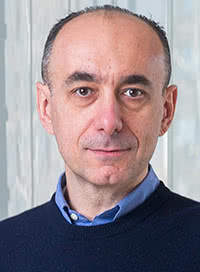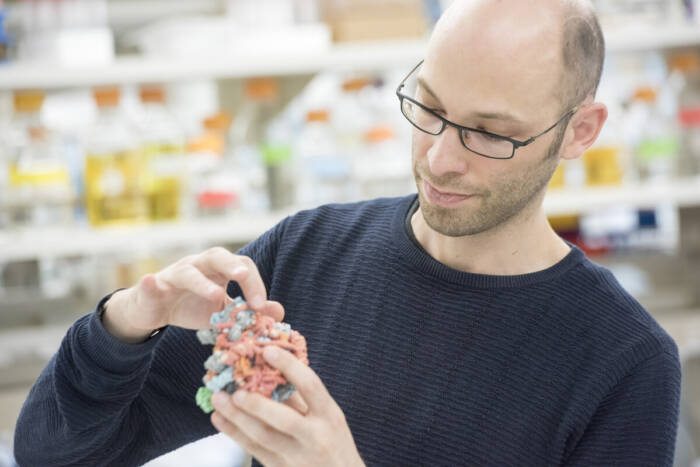The gene hunt to explain why some young, healthy people die from COVID-19
Early on in its emergence, it became clear that the novel coronavirus is particularly dangerous to older people and those with preexisting health conditions. But just as there are patterns, there are outliers. As the infection spread around the globe, reports started to pile up of young, previously healthy people whose disease suddenly turned fatal.
Finding out what has made this group of people so vulnerable to the infection may be an important step in developing new ways to treat the disease or identify those at high risk. And scientists suspect the answer may be in their genes.
“Infectious diseases are always an interplay between a pathogen and the host’s immunity,” says Jean-Laurent Casanova, head of the St. Giles Laboratory of Human Genetics of Infectious Diseases at The Rockefeller University. “At least some of these patients may suffer from a genetic variation that make their host defense particularly vulnerable to SARS-CoV2.”
Casanova, along with Helen Su at the National Institute of Allergy and Infectious Diseases are leading an international project, the COVID Human Genetic Effort, to comb through the genomes of many COVID-19 outliers in search of any rare gene variant that they may share, and that may explain their body’s insufficient response to the infection.
The outliers
All infections appear to come with what scientists call inter-individual clinical variability, meaning that a fraction of infected people are hit especially hard. With cytomegalovirus, for example, most cases are so mild that the infection goes unnoticed, yet it is often detrimental to fetuses and it kills one in a million infected individuals. Tuberculosis, on the other hand, can kill as many as five percent of infected individuals.
For COVID-19, outliers are relatively rare—for example, out of more than 11,800 deaths reported in New York City by late April, only 10 were under age 44 and had no underlying condition.
Over the past 25 years, Casanova’s team has uncovered single-gene mutations that make people unusually susceptible to certain infectious diseases. These minute genetic differences can have a big impact on immunity, rendering the patients unable to fight off a certain pathogen. Severe pneumonia caused by influenza, for example, has been linked to errors in genes that regulate production of immune signaling proteins, type 1 and type 3 interferons, which help keep influenza viruses in check. Similarly, there are genetic errors that can lead to low levels of the macrophage activating interferon gamma, rendering individuals vulnerable to infection by mycobacteria, including weak varieties of the pathogen that typically don’t harm most people.
So when the reports of novel coronavirus infections started to emerge from China, Casanova wasn’t surprised to hear about outlier cases. He shifted his attention to COVID-19 and reached out to colleagues for samples from the children and young adults who developed life-threatening cases.
A search party for a rare gene
The project quickly grew to an international effort. In sequenced genomes from samples from patients around the world, Casanova and his colleagues are looking for COVID-19 related genetic errors, paying special attention to the genes implicated in infectious diseases with symptoms reminiscent of COVID-19, such as those that regulate antiviral interferons. Any gene variants that stand out will be further analyzed in biochemical and immunological studies to pin down their potential role in the disease.
It’s possible that the findings from outlier cases could have clinical implications—in the case of mycobacterial disease, for example, they led to promising results from administering type II interferons to people who can’t make enough on their own. Outliers could also reveal clues about the mechanisms of a disease, ultimately leading to better treatments for broader groups of people.
Together with more than 30 collaborating institutes and hospitals around the globe, from New York to Tokyo to Sydney, the group has so far enrolled more than 300 patients under age 50 who had no existing medical condition but had been admitted to the ICU for COVID-19. “The approach is to try to enroll as many patients as possible, in as many hospitals as possible,” Casanova says. “That’s the best way to detect a signal when you are searching for a rare genetic variation.”



